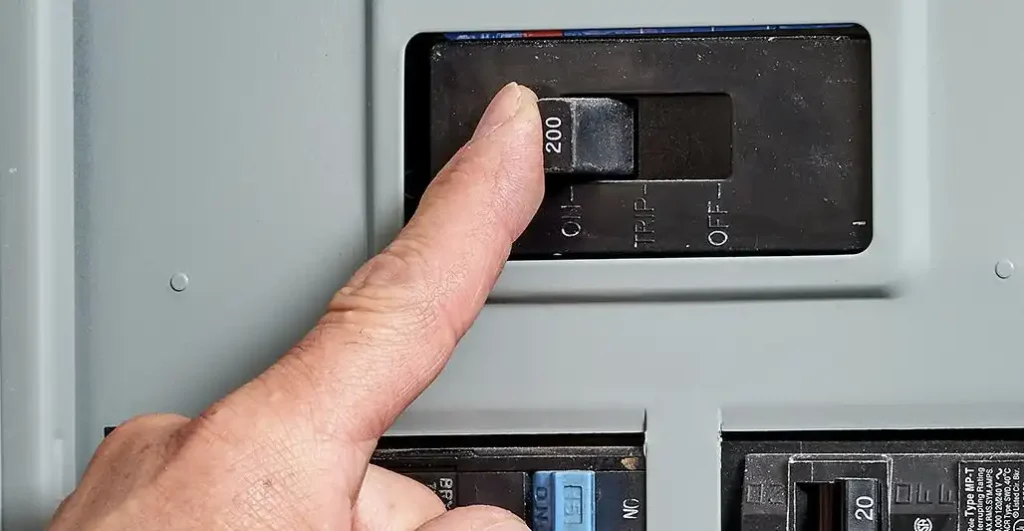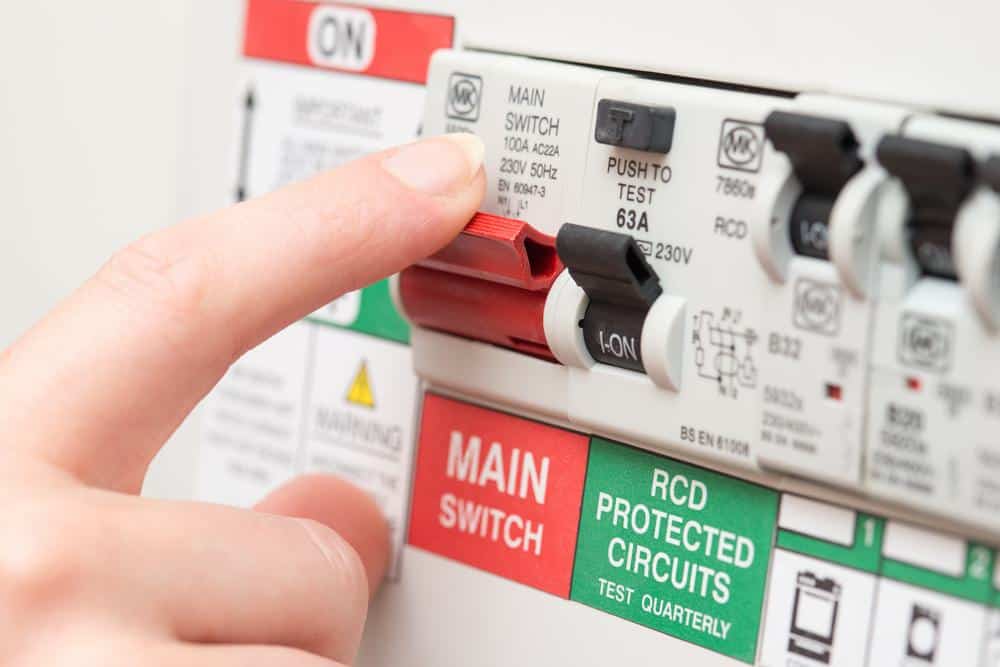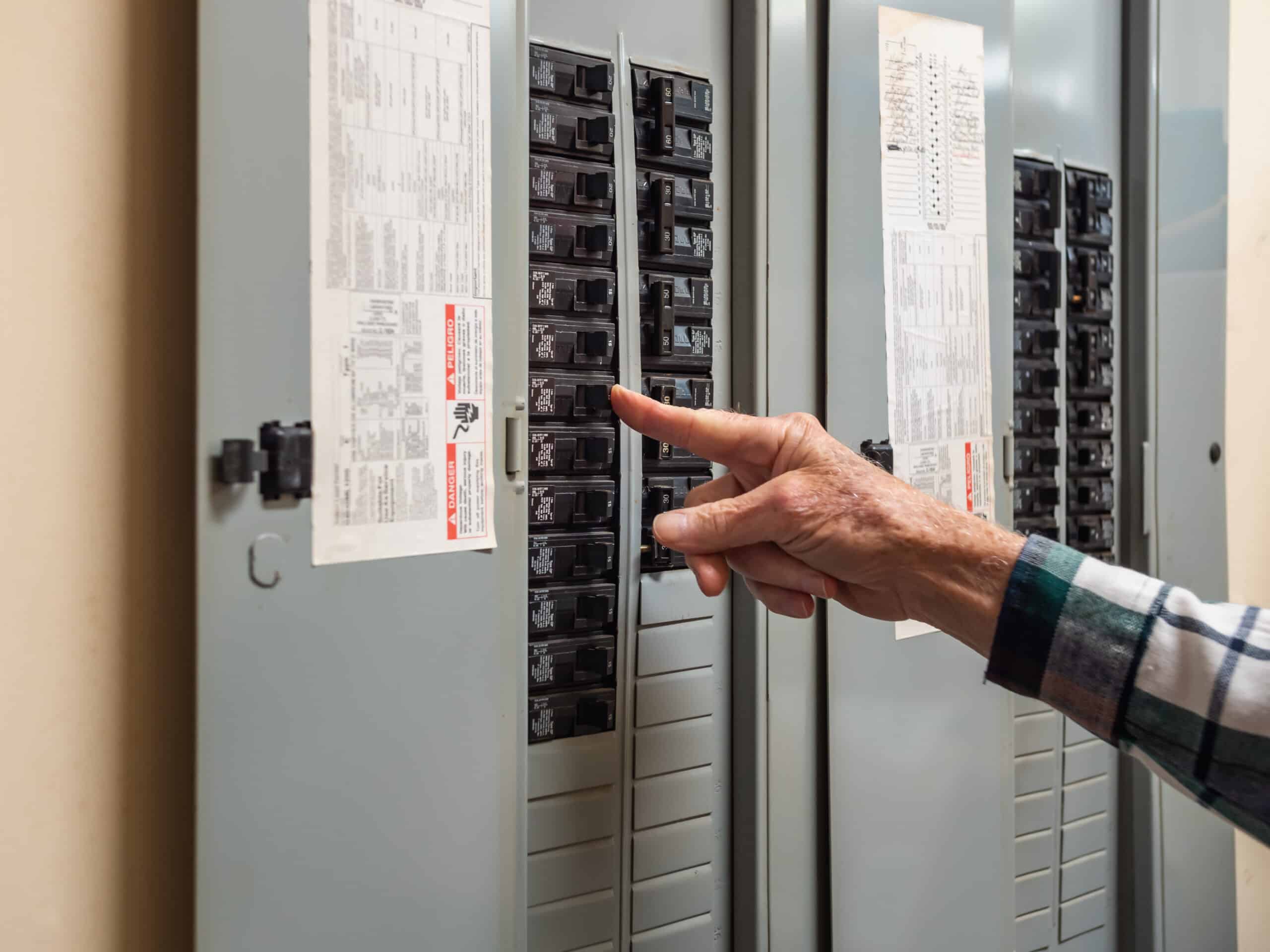Simple Info About Is It Safe To Turn On Breaker

How To Turn Off Circuit Breaker
Is Flipping That Switch Really a Good Idea? A Guide to Breaker Safety
1. Understanding Circuit Breakers
Okay, so you're standing in front of your electrical panel, staring at a tripped breaker. The lights are out in half the house, the kids are screaming about their video games, and you're wondering if it's safe to just flip that switch back on. I get it. Electrical panels can seem intimidating, but understanding a bit about circuit breakers can make the whole process a lot less scary.
Think of circuit breakers as tiny, tireless bodyguards for your electrical system. They're designed to trip — that is, automatically switch off — when they detect an overload or a short circuit. An overload happens when you're drawing too much power through a single circuit (think running a space heater, a hairdryer, and a microwave all on the same outlet). A short circuit is a bit more dramatic, and it usually involves a wiring problem where electricity is taking an unintended path, often resulting in a surge of current. Both scenarios can cause wires to overheat and potentially start a fire, which is why breakers are so important.
Before you even think about touching that breaker, take a deep breath. Rushing into it is never a good idea. First, identify why the breaker tripped. Was it just a one-time thing, or does it happen frequently when you use certain appliances? Knowing the cause is crucial to preventing future problems and ensuring your safety. Seriously, electricity is not something to play around with.
So, before you even consider flipping that breaker back on, make sure you've addressed the underlying issue. Don't just assume it was a fluke. Ignoring the problem could lead to more tripped breakers, damage to your appliances, or, in a worst-case scenario, an electrical fire. And nobody wants that, right?

The Golden Rule
2. Finding the Culprit
Alright, detective hat on! Time to investigate. Unplug any appliances that were running on the circuit that tripped. This includes lamps, TVs, computers, space heaters — anything that draws power. If it was a kitchen circuit, maybe you had the toaster oven and the blender going at the same time. Identifying the potential culprit can prevent the breaker from tripping again immediately after you reset it. Because nothing is more frustrating than a breaker that just won't stay on!
Once you've unplugged everything, give it a minute or two. This allows the electrical system to cool down and reset itself (metaphorically speaking, of course). Now, carefully flip the breaker all the way to the "off" position, then back to the "on" position. This ensures a full reset. Sometimes, breakers can get stuck in a halfway position, which can cause further problems.
If the breaker trips again immediately, even with everything unplugged, you've likely got a more serious problem on your hands, like a short circuit in the wiring. Do NOT keep trying to reset it. This is when you call a qualified electrician. Seriously, don't be a hero. Electrical work is best left to the professionals.
Remember, your safety is the top priority. If you're even slightly unsure about what you're doing, call an electrician. A small repair now can save you from a major headache (and potentially a house fire) later. Think of it as an investment in peace of mind.

When to Say "Whoa, Nelly!" and Call an Electrician
3. Recognizing Serious Issues
Okay, so you've unplugged everything, reset the breaker, and it still trips immediately. Or maybe you notice a burning smell coming from an outlet, or sparks flying when you plug something in. These are HUGE red flags that scream "call an electrician now!" Don't try to troubleshoot these issues yourself.
Flickering lights can also be a sign of a more significant electrical problem. While a single flickering bulb might just need replacing, widespread flickering could indicate a loose connection or an issue with your electrical panel. This is especially true if the flickering coincides with other electrical problems, like tripped breakers.
Another scenario where you should definitely call an electrician is if you have an older home with outdated wiring. Older wiring systems are often not equipped to handle the demands of modern appliances and electronics, which can lead to frequent overloads and tripped breakers. Upgrading your wiring can improve safety and prevent future problems.
Basically, if anything feels "off" or unusual about your electrical system, don't hesitate to call a professional. They have the training and experience to diagnose and repair electrical problems safely and effectively. It's better to be safe than sorry when it comes to electricity.

How To Deal With Tripped Circuit Breakers And Blown Fuses
Smart Habits to Prevent Breaker Trips
4. Simple Tips for Electrical Harmony
Preventing breaker trips is often as simple as being mindful of how much power you're using. Avoid overloading circuits by spreading out your appliances across different outlets and circuits. Don't plug multiple high-wattage appliances into the same outlet. This is a surefire way to trip a breaker.
Consider investing in a power strip with surge protection. These not only provide extra outlets but also protect your electronics from power surges, which can damage appliances and even cause breakers to trip. It's a small investment that can save you a lot of money in the long run.
Regularly inspect your electrical cords and outlets for any signs of damage. Frayed cords or cracked outlets can be fire hazards and should be replaced immediately. If you notice any discoloration or burning marks around an outlet, call an electrician to inspect it.
Finally, learn the wattage of your appliances. This will help you understand how much power they're drawing and prevent you from overloading circuits. Most appliances have a label indicating their wattage. Knowing this information can empower you to make smart choices about how you use electricity in your home.

FAQ
5. Your Burning Questions Answered
Let's tackle some common questions about circuit breakers, because I know you've got them!
Q: My breaker keeps tripping even when I'm not using anything. What's going on?
A: This could indicate a short circuit in your wiring or a faulty appliance that's drawing power even when it's turned off. Definitely call an electrician to investigate.
Q: What's the difference between a circuit breaker and a fuse?
A: Circuit breakers can be reset after they trip, while fuses need to be replaced. Breakers are generally considered safer and more convenient.
Q: Can I replace a circuit breaker myself?
A: While it's technically possible if you're experienced with electrical work, it's generally not recommended. Replacing a breaker involves working inside the electrical panel, which can be dangerous if you're not properly trained. It's always best to call an electrician.
Q: What does AFCI and GFCI mean on my breakers?
A: AFCI stands for Arc Fault Circuit Interrupter, and GFCI stands for Ground Fault Circuit Interrupter. AFCIs protect against arc faults, which can cause electrical fires. GFCIs protect against ground faults, which can cause electrical shock, particularly in wet areas like bathrooms and kitchens.
